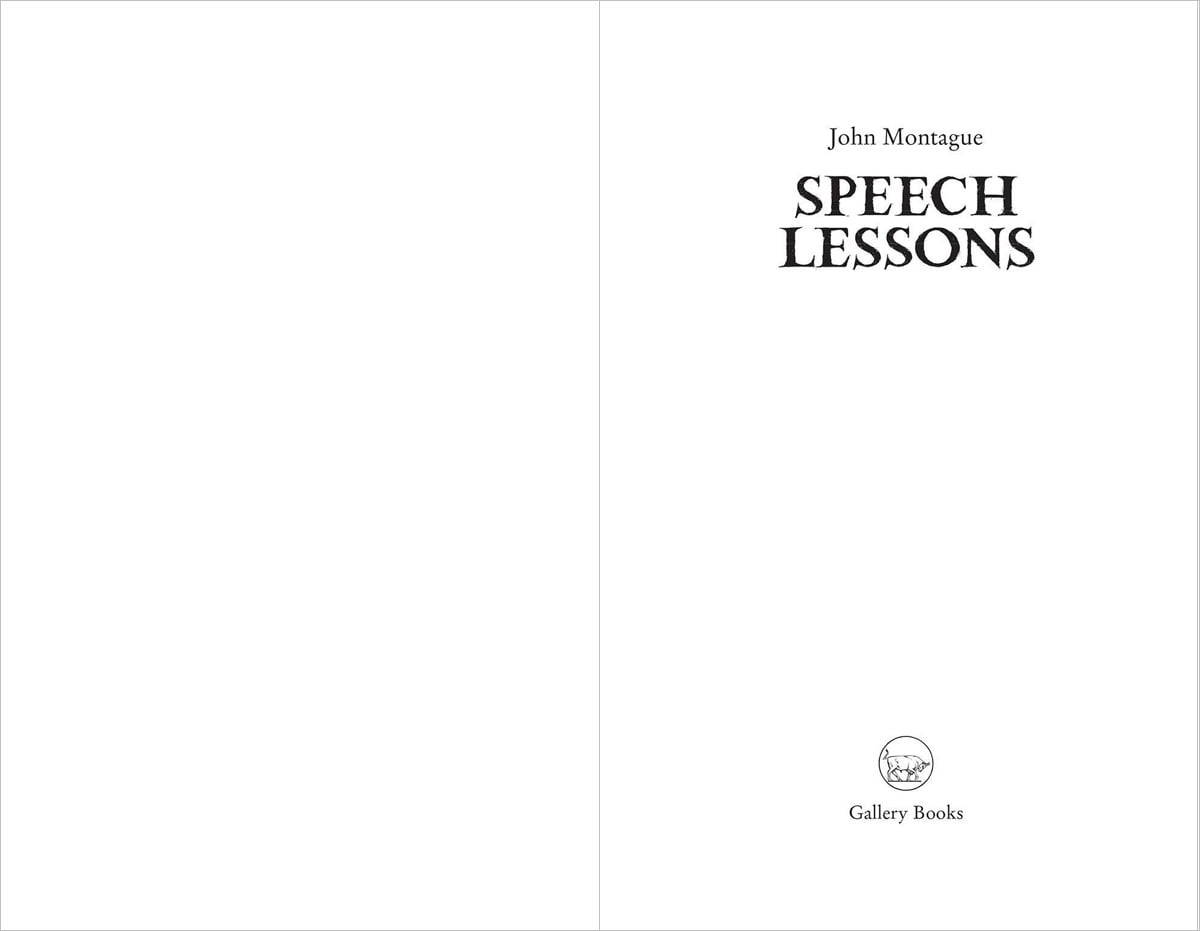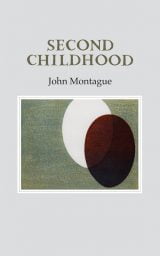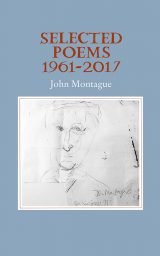Speech Lessons reprises the great themes of John Montague‘s work — his own, his family’s and his province’s histories. From signs of silent affection on that Ulster farm, the stations of a journey towards a fluent voice, re-imaginings of a bicycle trip along the Marne in the late 1940s and reflections on a President’s resignation, he continues his acts of excavation and recreation. ‘In My Grandfather’s Mansion’, a compendium of memories and another of the author’s extended works with a hint of the epic note, is the hub of an uncommonly enterprising and exuberant book.
The long hangar of the turf shed
faces the Broad Road where cars whine.
There our winter warmth is stored . . .
For more than half a century John Montague has brought a lively diversity of voice and experience to Irish poetry. ‘He is,’ as John Carey wrote in The Sunday Times, ‘virtually Ireland’s poet laureate. . . . His best poems are all autobiographical, and mostly about his aunts’ farm in County Tyrone . . . Splinter-sharp, they go straight to the heart, and catch in the memory like burrs.
‘Speech Lessons (Gallery, 72pp, €11.95) elaborates on a landscape and society with which his readers will be familiar. The poems dwell on ancestors, but the sequence ostensibly addressed to the memory of his grandfather segues into poems that remember the women of his family: as ever, Montague’s poems swerve away from readerly expectations. Silences begins as a pronouncement on poetry but turns, quickly, into a love poem, “a prayer before an unknown altar”. Montague’s poems may be newly nostalgic about the days of horse and cart, but the old analytic intelligence is evident, defending his choice of subject matter, maybe, when he observes “the future, already whirling past” ( The Long Hangar ).’ — John McAuliffe, The Irish Times
Writing as the future whirls past
In 2009, to celebrate his 80th birthday, the Gallery Press published a refreshing variation on the standard Selected Poems by way of tribute to John Montague’s long career. Chosen Lights crowd-sourced its selection, asking 30 poets to name and comment on their favourite Montague poems.
The result featured poems from each of Montague’s collections, and a commentary that noted the distinctiveness of Montague’s style: his use of autobiography, the cool carefulness of his diction, the border that dominates his national poems. Now, two years later, Montague has written a book that adds to and inflects our understanding of his work.
Speech Lessons (Gallery, 72pp, €11.95) elaborates on a landscape and society with which his readers will be familiar. The poems dwell on ancestors, but the sequence ostensibly addressed to the memory of his grandfather segues into poems that remember the women of his family: as ever, Montague’s poems swerve away from readerly expectations. Silences begins as a pronouncement on poetry but turns, quickly, into a love poem, “a prayer before an unknown altar”. Montague’s poems may be newly nostalgic about the days of horse and cart, but the old analytic intelligence is evident, defending his choice of subject matter, maybe, when he observes “the future, already whirling past” ( The Long Hangar ).
“Remarks are not literature,” said Gertrude Stein, but Montague’s pointed asides on Thomas Hardy and Máire Mhac an tSaoi, and tributes to John Berryman and others, do throw his own aesthetic and political preoccupations into sharp relief. His insistence on mischief is nicely caught in the rhyming lines which remember “that grown-ups of some importance / may still frolic like infants” (One Bright Sunday ), a sentiment enacted by his ecstatic portrait of Christ:
I saw a tiny Christ
caper on the cross
silent as a salamander
writhing in fire
(Baldung’s Vision )
— John McAuliffe, Irish Times
John Montague has been a major presence in Irish poetry for over half a
century. Speech Lessons sees him excavating the familiar territory of family
history, personal recollections of childhood, and the wider politics of
Ireland, all with a renewed sense, at the age of eighty-two, of how the
fragility of memory affects those three central preoccupations. The title
poem recounts a visit to a speech therapist, the “tongue-tied boy” blushing
amongst girls on the train into Belfast, wondering “When will I learn again
to speak?”, only to be regaled by the “ardent young Englishwoman” to read
”Drummond Allison” and learn from the example of George VI-ideas
and worlds far removed from the Tyrone farm he must return to, with its
”Rosary and a mug of Ovaltine / in the Sacred Heart-flushed kitchen”. Yet,
with the final line “I can still smell her perfume”, the poem turns with
delicacy from a narrative about a shy, stifled child to a boy getting the first
scent of adventure, the first understanding of a wider world.
The Tyrone farm is the location for many of the poems here, from
a sequence about Montague’s grandfather to a number of poems that
relate a touching, sometimes frustrated relationship with his Aunt Winifred,
a woman not old, but “no longer / a dancing girl/given bouquets / by
gallant men/but only wildflowers / by a little boy” (‘Disappointments’).
The voice in these poems is more in-the-moment than, say, the adult-
knowingness of Seamus Heaney’s farm recollections; the straightforward
reminiscence is more akin to John Hewitt’s later work, a rural counterpart
to the urban boyhood in that poet’s Kites in Spring. In ‘Home Coming’,
”another routine chore” — bringing in the cows — leads to a beautiful,
detailed description of the cattle “waiting to be escorted home / between
hawthorn hedges”. Never have these animals been imbued with such grace,
the pace of the poem slowing down as they slow down for the night. If the
motifs of Montague’s poetry-rural life, state religion, childhood-are
those which are now often disparaged by English and Irish critics alike as
too prevalent in Irish poetry, it is good to see Montague rendering such
critiques vacuous as he succeeds in making those motifs new. With ‘The men in hard hats, yellow orange blue, with trucks and JCBs and such description of that art. ‘Transfers’ is an example-all too rare-of good
political poetry being good simply because of what it is.
— Michael McKimm, Warwick Review






